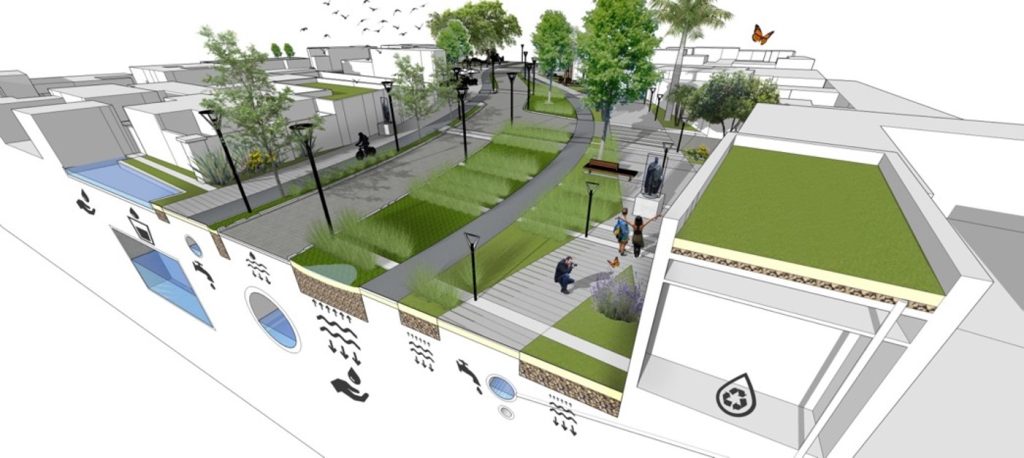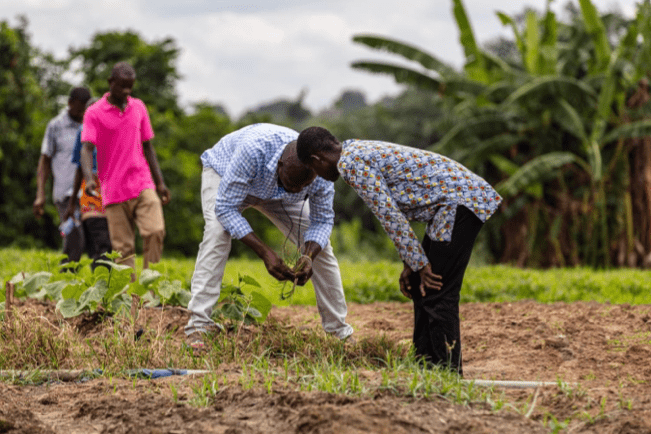10 Dutch entrepreneurs and research institutions have been granted a subsidy for international feasibility studies and pilot projects! This is the result of the first round of subsidies under the Partners for Water 5 (2022 – 2027) program.
On January 25, the participating parties met in The Hague and presented the projects for which they received subsidies. Together with local partners, they will use their knowledge and skills to make a positive and innovative contribution to water safety and water security in various countries in the upcoming years.
The feasibility studies and pilot projects of participating organization will be conducted in in Eswatini, Ghana (2), Nepal, Suriname, Ecuador, Malawi, Colombia, Kenya, and Mexico. This will be done in close collaboration with local partners.
Partners for Water subsidy scheme
The Partners for Water subsidy scheme helps businesses, research organizations and NGOs that want to conduct a feasibility study or start a pilot project with the aim to improve water safety and water security in foreign delta’s, delta cities or river basin areas.
The 10 projects
- Water availability forecaster (Eswatini)
The consortium HydroLogic (the Netherlands), Emanti Management (South Africa), and FutureWater (the Netherlands) will launch a pilot project for the GLOW water availability forecaster. - Climate-smart irrigation system (Ghana)
Through a pilot project, the Technical University of Delft aims to further develop an innovative climate-smart irrigation system. - Precision irrigation systems (Suriname)
Tijms B.V. and Attro Trading Africa aim to provide sustainable solutions for problems that arise with unhealthy soil conditions - Powerful water pump (Nepal)
Together with Himalaya Agro-ecology Research and Development and Agro-Eco Advisors, aQysta B.V. is starting a study on the use of an energy-efficient and powerful water pump to irrigate higher-altitude lands and improve soil quality of Nepalese farmland. - Flood prediction service (Malawi)
In Malawi, HaskoningDHV is launching a feasibility study on the use of their flood prediction service.
- The use of natural groundwater buffers (Colombia)
Deltares will conduct a study to assess the conditions and risks for storing and recovering fresh water and to pre-design an Aquifer Storage and Recovery system for local banana farms. - Affordable recirculating aquaculture systems (Kenya)
In Kenya, a consortium of the Wageningen Research, AquaFarmingConsult, EKAS Technologies, FOSPA-Africa, Laikipia University, KMFRI and Nyeri Fish Farmers Cooperative S. (LTD) will conduct a feasibility study for the use of affordable, solar-powered recirculating aquaculture systems (A-RAS) for small-scale fish farmers. - Circular water systems in cities (Mexico)
In Oaxaca de Juarez, the architecture firm Beccan Davila is partnering with Field Factors and the Mexican research institute Centro to conduct a feasibility study for the implementation of BlueBlogs in the city. - Monitoring and combating algae (Ecuador)
In Ecuador, LG Sonic B.V. has started a pilot project to tackle the growth of algae in shrimp ponds. - Smart reuse of wastewater (Ghana)

Bureau M2 B.V. is conducting a feasibility study to explore the conversion of wastewater into irrigation water.
Learn more
Do you want to learn more about the projects and subsidy scheme? Check out the Partners for Water website!


